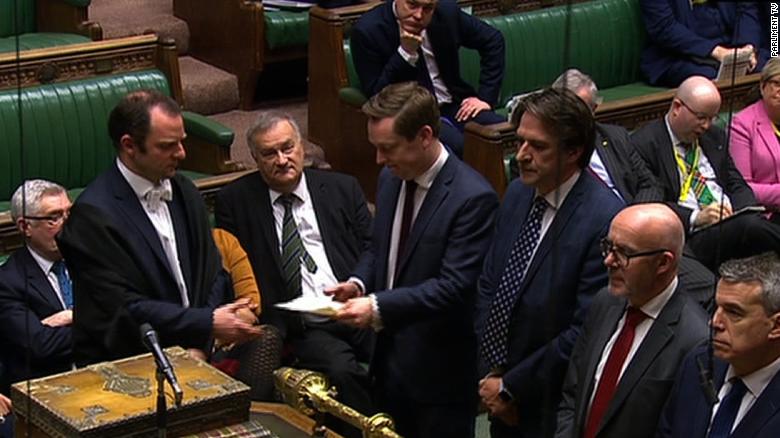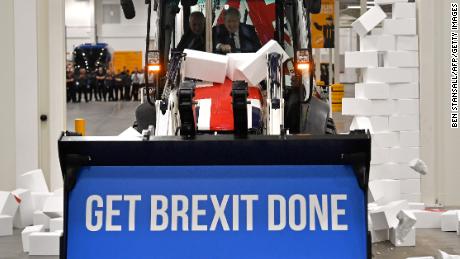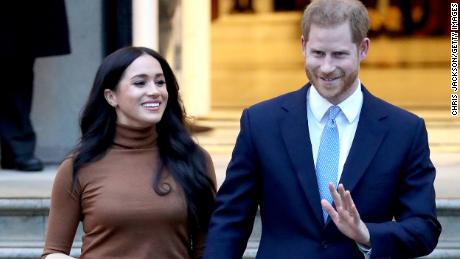London (CNN)The House of Commons has voted overwhelmingly in favor of Prime Minister Boris Johnson's Brexit deal, finally paving the way for the United Kingdom to leave the European Union later this month after more than four decades of membership.
The deal has cleared its biggest hurdle with the vote that followed a third reading in Parliament, in which 330 voted for and 231 against, putting an end to three years of political wrangling following the 2016 Brexit referendum.
Thursday was the last opportunity for MPs to reject the bill before it is sent to the House of Lords, after which it will be put into legislation in coming weeks.
The deal had been shot down by a fractured House of Commons several times over the past year, sending Westminster into a tailspin over whether Brexit would happen at all.
But Thursday's vote in parliament stood in stark contrast to the upheaval that dominated British politics last year, which included the resignation of former Prime Minister Theresa May.
Johnson's plan is essentially the same as May's, but replaces her Northern Irish backstop mechanism with a de facto customs border in the Irish Sea between Northern Ireland and the rest of the UK, which was a sticking point in May's deal.
Brexit became inevitable, however, when Johnson's Conservative Party won a commanding 365 of the House's 650 seats in last month's snap election.
The deal was widely expected to clear the House of Commons Thursday, and with little mystery surrounding the outcome, only a few dozen MPs turned up to deliberations ahead of the vote.
The near empty chamber in parliament stands in stark contrast to previous votes, when the House was bursting at the seams and the Brexit bill attracted fierce opposition and debate.
Johnson is now poised to take his country out of the EU on January 31, some 10 months after it was originally scheduled to.
Observers say Brexit will only get messier, as it enters its second phase and negotiations for a trade deal with the EU begin in earnest.
The UK will remain under EU rules of trade until December 31. Johnson has said he expects to strike a trade deal in that time, though European Commission President Ursula von der Leyen said in London Wednesday that the timeframe was likely too short and pointed to potential trade barriers should the UK leave without a trade deal.






















